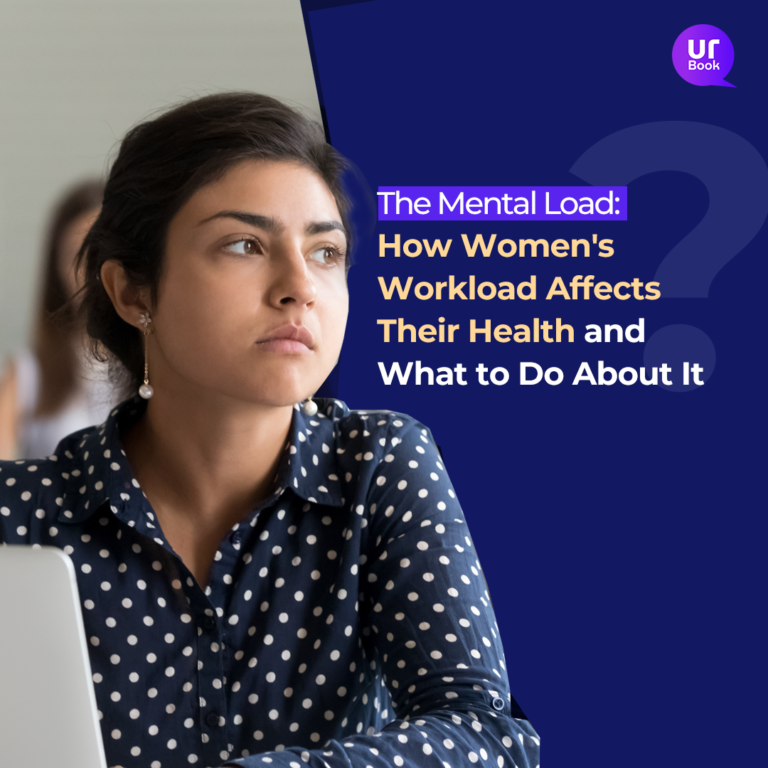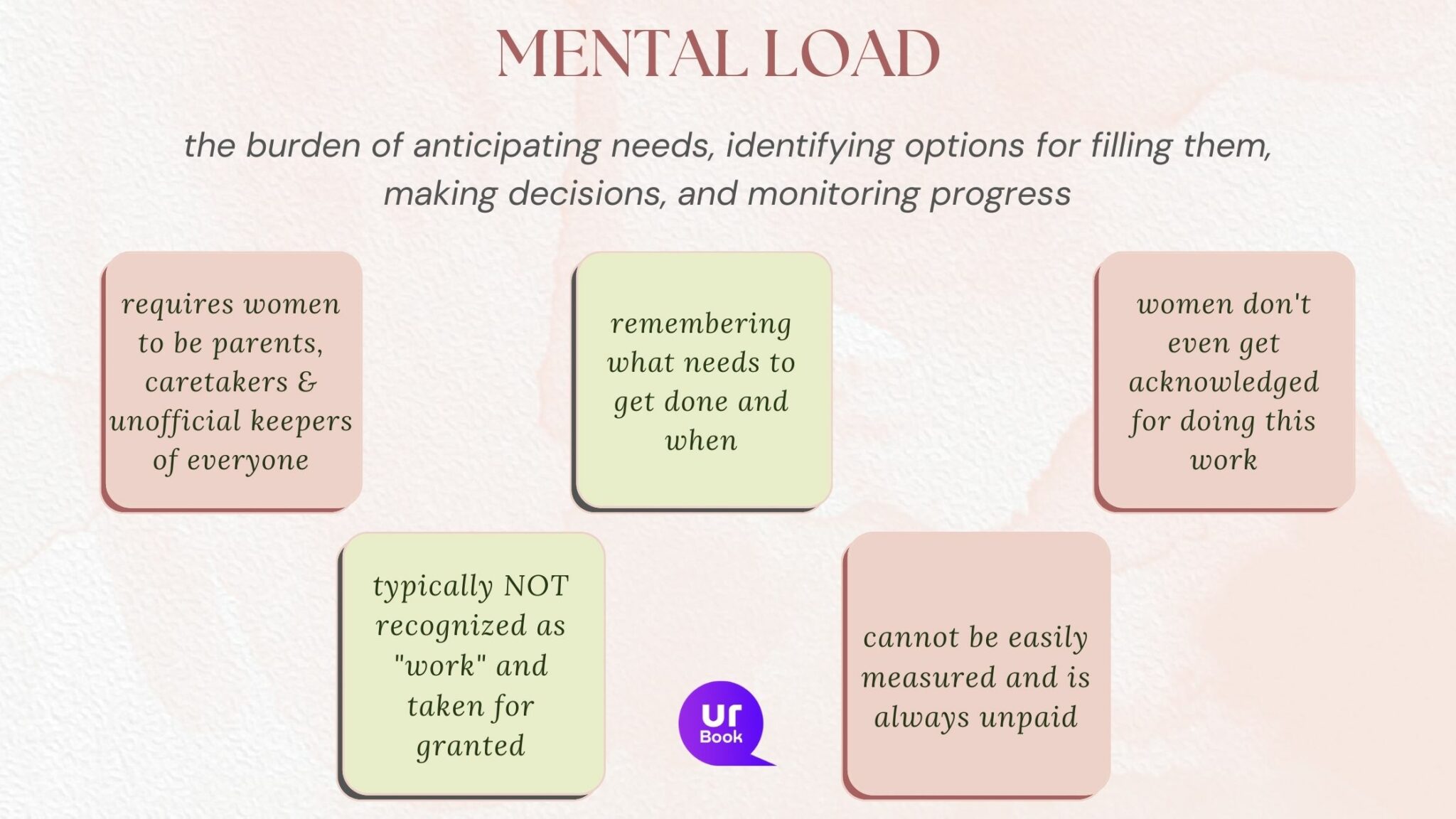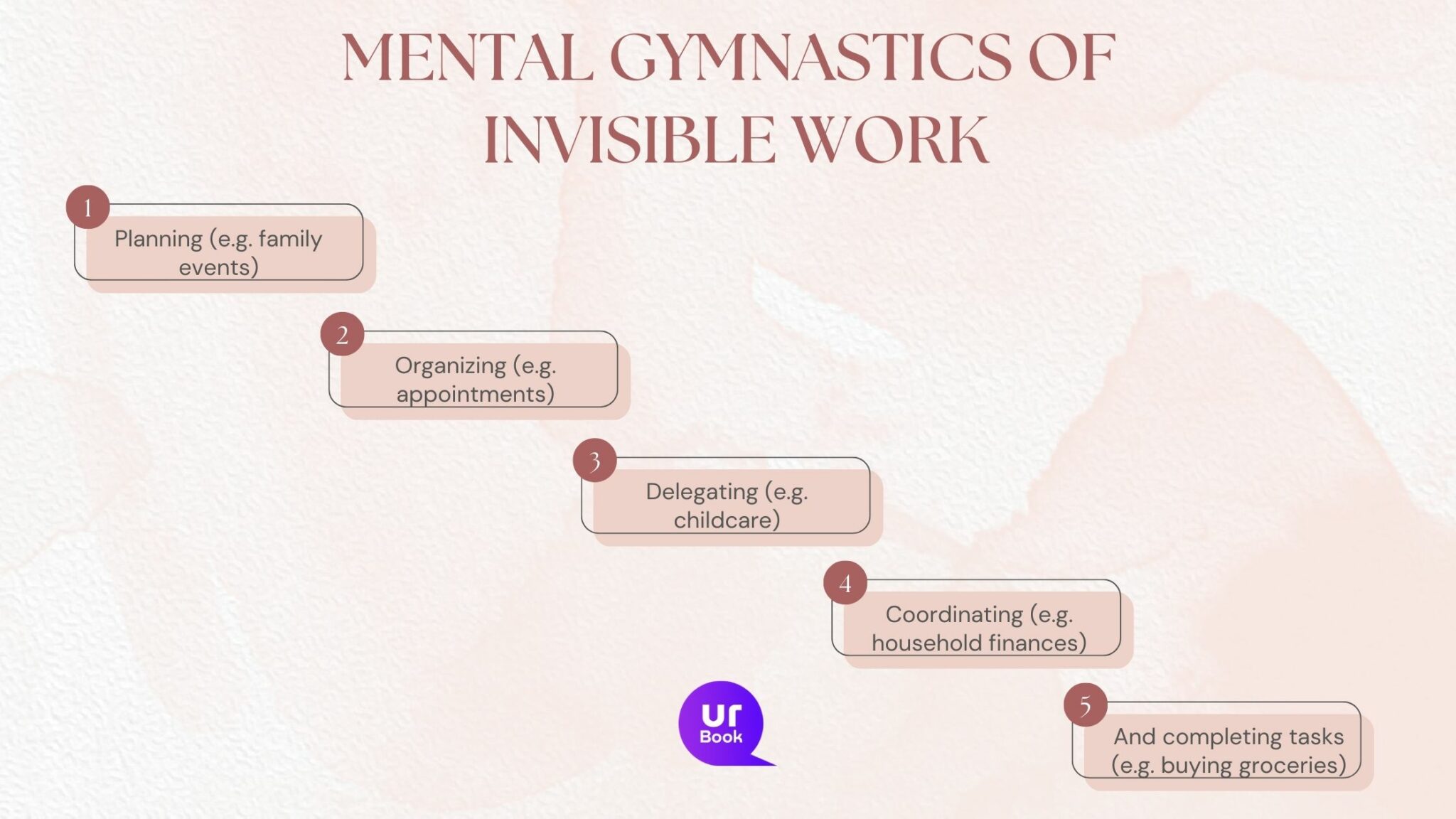
Mental Load
Work. How many kinds do you think you do?
Office work. House chores. Right?
Apparently not.
For most women, there is a third kind of work: “worry work.” Also called cognitive labour, invisible labour, or mental load, it’s not physical work per se but rather the constant burden of overseeing and managing a family and household.
What is mental load?
Who makes sure that the detergent doesn’t run out? Who makes sure that the kids have completed their homework? Who makes sure that there is milk in the fridge?
Even if someone else is buying the milk, you are the one assigning the task and making sure it actually gets bought.
Sounds familiar? Well, because it is.
Even in the most progressive homes, this “thinking work” almost always falls on the woman’s shoulders.
Apart from the physical chores like cleaning and cooking, women are burdened with being in charge of a never-ending to-do list. It’s invisible and intangible. Yet, your brain is constantly running, which takes a toll!

Combined with house and office work, how does mental load impact women’s health?
According to Bright Horizons, 86% of working moms say they handle all family and household responsibilities. 52% are facing burnout from the weight of it.
Why? Because mental load saps energy.
And that has significant, harmful effects on women’s mental health and well-being. As they continue to juggle work and home lives while also being the primary managers of the house, they have more:
- Stress
- Anxiety
- Depression
Because it reduces the time left for self-care and activities that protect our mental health, there comes a time when most women are overwhelmed. They become stretched too thin and finally burn out.
What’s worse? This invisible labour has very physical bearings too:
- Headaches
- Muscle Tension
- Fatigue
- Lack Of Sleep
Combined, they weaken the immune system and exacerbate problems like high blood pressure and the risk of chronic diseases. As if that wasn’t enough, it spills over into personal and professional relationships.
Mental load creates a vicious cycle.
Women usually get exhausted due to mental load, which causes them to become impatient faster, which leads to shame because they feel they are either an awful mother or colleague.
Plus, there is the feeling of being pulled apart. If women focus on work, they assume it is at the expense of the home. If they concentrate on home, they feel they’re neglecting work.
Moreover, constantly being the captain of the ship frequently creates deep resentment for the partner. You’re angry that your partner is not pulling his weight, and that can cause intimacy problems.

What can be done to change this intractable problem of mental load?
Being perpetual guardians is a reality for many women, but there are practical solutions to it.
1. Share the load by communicating openly
The first thing you need to do is tell your partner and family about your mental load. Don’t know how?
- Shoot them a link to this article or this one. It will help explain what mental load is.
- Then sit down and share how you’re feeling. Use “I” statements, not “you” statements.
- Finally, tag-team chores with your partner. He gets to be the household manager some days and you on others. This ensures that both of you spend the same amount of time on tasks. Or you can do it together and create a positive vibe of teamwork.
2. Outsource as many chores and tasks as possible
Outsourcing tasks like hiring a cleaner or ordering meals reduce the mental load because you don’t have to worry about what groceries to buy or when to find time to clean in your busy schedule. Another option is to delegate tasks to a virtual assistant. For example, use Sheela to coordinate health care for elders at your home.
3. Set boundaries
Say “no” to additional responsibilities at home and limit work hours at the office. By defining what is and is not acceptable, you can manage your mental load.
4. Relinquish control
This is a hard pill to swallow, but if you want to reduce your mental load, then you too need to change. Stop gatekeeping household work. After you’ve delegated work to someone else, don’t monitor or correct how they are completing the chores. Trust them to do it well. When you interfere or criticise, it can discourage them and stop them from fully engaging.
5. Prioritise self-care
Self-care is a topic all its own, and we’ll be talking about it in another article soon. But here’s the gist of it: Take care of yourself by doing activities that bring you joy and relaxation every day, like taking a relaxing bath or listening to music. They not only reduce mental load but also help manage stress, anxiety, and depression.
- Therapy can be a valuable tool. A mental health professional can help you develop coping strategies and process emotions.
- Mindfulness meditation will help you focus your attention on the present moment without judgement. Take a few minutes to meditate in the morning or simply do mindful breathing during the day to improve your overall well-being.
- Regular physical activity increases endorphins, which are natural mood boosters. Incorporate exercise into your daily routines. Take a brisk walk during lunch breaks or go to a fitness class after work or choose the activity you like dancing, Zumba or anything that involves physical workout.
Don’t take on the pressure to be perfect
Even as women shatter glass ceilings everywhere, you are taking on a hidden burden. Don’t bend under the societal expectation to be perfect in all fields of life.
Ask for help. Talk to our therapist for more guidance
And if you’re beginning to realise that you’re hampered by invisible mental labour, address it immediately. Not doing so will brew resentment, and blow up one day.
